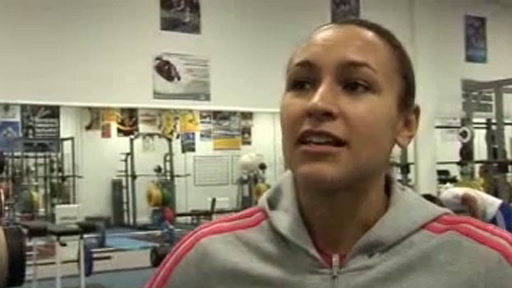3 Sport injury-related growth
Before concluding this session, it is important to note that sport injury can lead to positive as well as negative experiences. You have learned that responses to injury can be positive rather than negative – for example, where an injury is interpreted as providing a break from intensive training or as an excuse for poor performance. Individuals who have positive responses may not want to recover quickly and consequently may not engage with rehabilitation activities and are sometimes termed ‘malingering athletes’ (Brewer and Redmond, 2017).
Positive experiences can, however, also be derived by individuals who interpret injury as negative. This can be termed ‘sport injury-related growth’ and can be defined as ‘perceived changes that propel injured athletes to a higher level of functioning than that which existed before their injury’ (Roy-Davis et al., 2017, p. 36).
Research has consistently demonstrated that positives (growth) can be derived from the negative experience of sport injury (Salim and Wadey, 2018). In a study by Wadey et al. (2013) eight coaches were interviewed about the growth they perceived injured athletes to experience. Four categories of growth were identified:
- Personal growth – development of beliefs, attitudes, knowledge, priorities, outlook and general qualities
- Psychological growth – development of sporting qualities and coping skills
- Social growth – development of social support
- Physical growth – development in strength and conditioning.
You will explore these categories of growth further in the next activity.
Activity 4 Positive consequences
Those who have experienced sport injury often find that being injured can lead to several negative psychological reactions. However, despite this, it is also possible for these individuals to derive positive benefits (growth) from their injuries. In this activity you will explore some of these potential benefits.
Watch Video 2 below in which former heptathlete Jessica Ennis-Hill discusses some of the positive consequences she derived from being injured. As you watch the video:
- Categorise each of the positive consequences she mentions under one of the categories of sport injury-related growth identified by Wadey et al. (2013):
- personal growth
- psychological growth
- social growth
- physical growth.
- Identify any further examples of positive benefits that injured athletes (including Lois and Travis) may experience that would fit under these four categories.

Transcript
| Category | Examples |
|---|---|
| Personal growth | |
| Psychological growth | |
| Social growth | |
| Physical growth |
Discussion
The video starts with Jessica Ennis-Hill stating that she believes injury made her stronger and concludes with her saying that her performance improved as a result of injury. This demonstrates that she experienced sport injury-related growth.
Some of the comments she made in the clip have been integrated into the table below, along with some examples of quotes from Travis and Lois that also fit under the four categories of sport injury-related growth identified by Wadey et al. (2013). You may have come up with several other examples of your own.
| Category | Examples |
| Personal growth |
|
| Psychological growth |
|
| Social growth |
|
| Physical growth |
|
In Sessions 7 and 8 you will examine some of the psychological techniques that can be used to help individuals deal more positively with sport injury.
